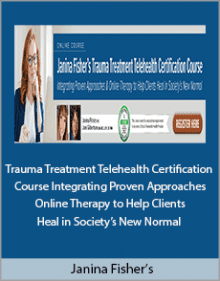Stephen Jones – Complex Childhood Conditions: 101 Strategies for Healthcare Professionals
Original price was: $219.99.$43.00Current price is: $43.00.
During this full-day, interactive program, you will learn evidence-based strategies for the recognition, prevention, and management of a number of pediatric conditions that cause children to “not feel so good”, along with the skills to differentiate between CAUSE and SYMPTOM.
- Description
- Reviews (0)
- More Products
Description
Stephen Jones – Complex Childhood Conditions: 101 Strategies for Healthcare Professionals
Description
- Differentiate between “WNL” and baseline
- Identify actual cause versus symptom
- Sleep deprivation’s multisystem effects
- Dehydration: The problem involves fluids AND electrolytes
- Those nasty skin issues… solved!
- Consequences of anaphylaxis and the apnea-reflux connection
I can’t breathe. My head aches. I feel hot. My inhaler is not working. I can’t sleep. I can’t stop coughing. This rash won’t go away. My stomach hurts. Isn’t that a good pulse oximeter number?
All the above sound familiar? These are just a few of the complaints we hear from children when they are “not well”. Children may present with acute illnesses, flare-ups of chronic conditions or life-threatening complications. As pediatric healthcare providers, it is essential that we grasp and understand the inter-relationship of both complex and common pediatric conditions. During this full-day, interactive program, you will learn evidence-based strategies for the recognition, prevention, and management of a number of pediatric conditions that cause children to “not feel so good”, along with the skills to differentiate between CAUSE and SYMPTOM. Stephen will provide you with the knowledge you need through discussion, case studies and “fun”, addressing pharmacological, technological and non-pharmacological management, including critical assessment clues and interventions. You will leave this educational event feeling confident to manage complex childhood conditions!
Handouts
Outline
Assessment
- Growth and developmental considerations
- Oxyhemoglobin dissociation curve
- Diagnostics considerations
- Pulmonary Function Testing (PFT)
- Airway clearance: Techniques & technologies
- What the chest x-ray is telling you
- Lab values: Normal vs. baseline
- Pulse oximetry: What does it really mean?
- The allergic cascade
- The concept of linked airways and airway inflammation
- Hygiene hypothesis
- Pulmonary non-pharmacological and technological management
- Oxygen therapy: Devices used for both low and high flow rates
- Mist/Humidification
- Medication delivery devices: MDI/spacer, nebulizers, dry powder inhalers
Sleep
- Patterns of “normal” sleep – influences of disruption
- Effective management: Nonpharmacological and pharmacological
Anaphylaxis
- Underlying physiology of how this occurs
- Effective management strategies: Preventive and acute
Respiratory Conditions
- Tips for quick identification
- Critical nonpharmacological and pharmacological interventions for:
- Apnea
- Childhood asthma: The “Step Management”
- Croup: “The Good, the Bad, the Ugly”
- The 2 Cousins: RSV & Human Metapneumovirus
The Art of Skin and Wound Care in Children
- Identify underlying causes for skin and wound issues
- Optimize the healing process
- Selecting the best product for children’s skin issues
Sports Related injuries
- Assessment and management of The un-“Magnificent 7”: Laceration/cuts, hematoma, contusions, strains, sprains, fractures, concussion
“Temperature” Issues
- Identifying and describing The Big 3:
- Hyperthermia, hypothermia and fever
- Evidence-based guidelines for The Big 3
Gastrointestinal Conditions
- GER
- Identifying and differentiating “GER” versus GERD
- The benefits of acid/base balance
- The 3 steps of appropriate symptom management – and prevention
- The “opposite” conditions: Constipation and diarrhea
- Underlying pathophysiology of both conditions
- Evidence-based guidelines for appropriate management
Faculty
Stephen Jones, MS, RN, PNP, ET, is a Pediatric Clinical Nurse Specialist/Nurse Practitioner and Enterostomal Therapist who practices fulltime at the Children’s Hospital-Albany Medical Center in Albany, New York. In this role, Stephen cares for children in a variety of pediatric units, with both acute and chronic conditions, including the general pediatric units and PICU.
He also manages children with pulmonary conditions in the Pulmonary and Cystic Fibrosis clinics. As an Enterostomal therapist, Steve also consults in the NICU and various outpatient clinic settings for skin/wound/ostomy issues. Within his many roles, he interacts and deals with children with many and varied conditions. Within these roles, a good percentage of Steve’s time is spent in managing children with myriad types of upper and lower airway/pulmonary conditions, from acute to chronic conditions, including asthma, BPD, and Cystic Fibrosis, as well as children with mechanical ventilators.
Stephen is a published author, having written numerous chapters for textbooks and professional journal articles. In addition to his active clinical practice, Stephen is the founder of Pediatric Concepts, a company dedicated to providing quality pediatric educational events for healthcare professionals. Stephen holds undergraduate degrees from Union College and Skidmore College, while his graduate degree is from the University of Rochester.
He has been a frequent presenter on pediatric related topics and serves on speakers bureaus for a variety of pharmaceutical companies. He is a soughtafter speaker who has lectured extensively to diverse audiences throughout North America for over thirty years.
Speaker Disclosures:
Financial: Stephen Jones is the founder of Pediatric Concepts. He has an employment relationship with The Children’s Hospital – Albany Medical Center. Mr. Jones receives speaking honorarium from PESI, Inc.
Non-Financial: Stephen Jones has no relevant non-financial relationship to disclose.
Be the first to review “Stephen Jones – Complex Childhood Conditions: 101 Strategies for Healthcare Professionals”
You must be logged in to post a review.
-
Saurabh Mukherjea – The Unusual Billionaires
Original price was: $33.69.$17.00Current price is: $17.00. Buy now -
King Epic – Thailand and Mexico Guide
Original price was: $497.00.$62.00Current price is: $62.00. Buy now -
Renee Robyn – Creating Your Reality With Composite Photography
Original price was: $69.00.$27.00Current price is: $27.00. Buy now -
David Hood – Operation Seo Agency Empire
Original price was: $477.00.$68.00Current price is: $68.00. Buy now -
Howard Schultz – Business Leadership MasterClass
Original price was: $997.00.$137.00Current price is: $137.00. Buy now -
Garry Tonon – Shoot To Kill Wrestle Scramble Submit 1080p
Original price was: $197.00.$39.00Current price is: $39.00. Buy now





















Reviews
There are no reviews yet.